May 23, 2014
From True Blood and Fargo to Everything Else
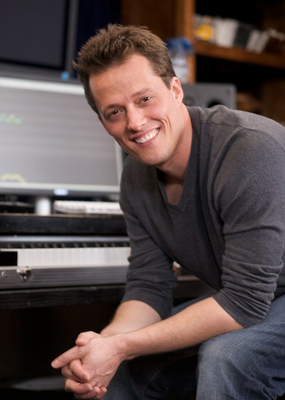 A conversation with Sean Callery, Nate Barr, FM Le Sieur, James Levine, Daniel Licht, Trevor Morris & Jeff Russo
A conversation with Sean Callery, Nate Barr, FM Le Sieur, James Levine, Daniel Licht, Trevor Morris & Jeff RussoMike Ragogna: You are basically responsible for how the viewer absorbs the emotional and sometimes subtler elements of a script and performances. Does that responsibility ever weigh particularly heavy on your shoulders? Can it also be the reverse, an invigorating challenge? Maybe both?

Nate Barr/courtesy of Alexis Korycinski
Nate Barr: The responsibility to create a score that contributes meaningfully to a film or TV show feels greater when the show is strong on its own. At that point, if I'm not doing my job to the utmost of my abilities, the music can really subtract from the strengths of the film. It's easier to take a film that has major problems and compose music that can really only help. Either way, watching a film or TV show take on new meaning with my music is the ultimate reward.
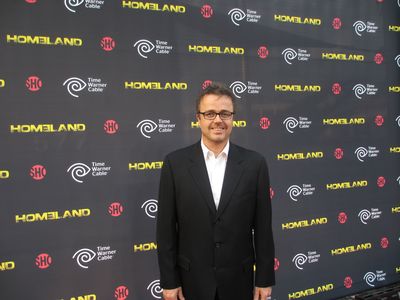
Sean Callery/courtesy of CW3
Sean Callery: Both situations absolutely arise. When there is a larger scene involving a major moment or transition in the story (such as the death of a major character), I try to approach the scene as I would any other and not be too self-conscious about it. You aspire to compose a score that serves each scene and enhances the telling of the story throughout. Having said that, there are times when you do realize you're working on an extraordinary moment and you try to take great care with that. There have been many such moments throughout the 24 series.

FM Le Sieur/courtesy of Robitaille Photo
FM Le Sieur: It's an invigorating challenge. When you score a scene and you know it's the right fit, it's a great feeling. But there is also a weight, especially at the beginning of the writing process of a TV series; but that is half the fun! The challenge in the first season of a TV show is to write those first drafts and first music themes, but on the plus side this gives you more freedom. You can try a different palette of sounds or instrumentations. Once you've found it and everything starts to gel, you have the sound of the show. After that comes the challenge of creating new or variations of the music, like when a new character is introduced on the show.

James Levine/courtesy of James Levine
James Levine: Definitely both. I never take my responsibility to a production for granted, and often find the challenge of bringing emotional and subtle elements to light very invigorating!
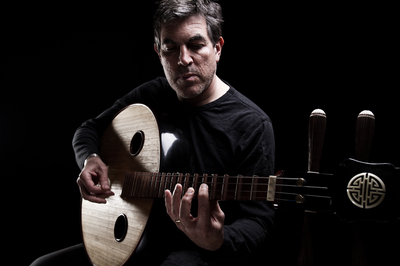
Dan Licht/courtesy of Dan Licht
Daniel Licht: As a composer, one does not have an unlimited amount of power to affect a dramatic piece. It is necessary for there to be enough on the screen and in the script to be able to breathe life into it. Some pieces work great without any music at all. This makes the job of the composer much more fun, because you can focus on highlighting either what is already there, or adding a new layer, such as an ironic twist or a bit of menace that plays against the scene. All projects are always an invigorating challenge. The challenge is always to do the best you can and do it in a novel way!
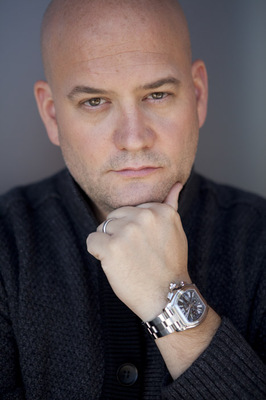
Trevor Morris/courtesy of Dove Shore
Trevor Morris: I am very aware of the importance of music and its role. To be honest, it's what I love the most about what I do. I get to tell an emotional story or narrative through music. Something I do take very seriously, and at the same time take great joy in.
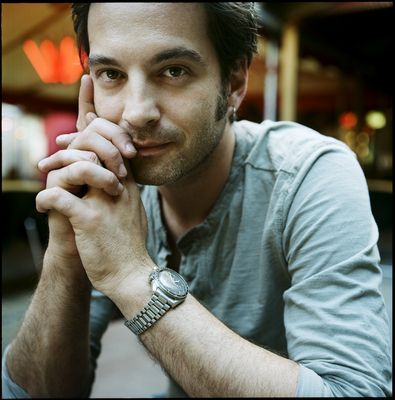
Jeff Russo/courtesy of Vanessa Maas
Jeff Russo: It's an invigorating challenge, mostly. Sometimes it can be daunting if the performance needs to be made better, which can be asked sometimes. On Fargo, however, the scripts and the performances are so impeccable that my job is made easier. I just have to show up and write music that supports the narrative and feel of the scene.
MR: How much do you submerge yourself into what's being presented on the screen to be able to assist the storyline?
NB: The best way to submerge myself in a project is to find that one character or thread in the storyline that I can personally relate to on some level. At that point, I am bringing my own life experience to the process and have the best shot at composing an effective score.
SC: I often change my vantage point throughout the composition process, between deep submersion while composing, and then backing away a distance to make sure the music is working in relationship to everything else. There are also visual cues that sometimes poke out as well; things not necessarily related to dialog or a character's actions. The frenetic way a camera is moving across a space, for example, or the cold lighting of a room. So many talented people have brought their talents and craft to bear before I even look at the picture. There is a treasure trove of detail in there.
FMLS: The key is to watch and re-watch the episodes many times, and always remember the emotions you felt the first time you watched an episode. There's a good chance that's what the audience will also feel. So the trick is to remember this as you write the music. I also try not to watch too much TV or movies, as I don't want to be influenced by other music.
JL: I always try to immerse myself in the characters and story, as well as the physical aspects of the production. I once had a songwriting teacher who would have me close my eyes and imagine the artists who would be singing the songs I wrote. In much the same way, I try to imagine myself in character for each score.
DL: I always try to immerse myself in the world for which I am writing music. I try to picture myself in the place of the characters and imagine what I would be feeling if I were them, and then try to translate that emotionally to music.
TM: Oh, fully and deeply. You kind of have to. You're trying forever to get "inside" the project, so you can dig into the subtext, play what is not on-screen, but what people are feeling (or what we'd like them to feel).
JR: I read all the scripts and watch the episode a few times to really get into the feel of the show before I start writing. That way, I have the story in my subconscious already.
MR: What are the most challenging aspects - technically or emotionally - in creating the score?
NB: The most challenging aspect in creating a score is often in the early stages of exploration, before I have any idea of what is going to work. It's like stumbling around in a dark room looking for the light switch. Also challenging, however, can be a film that is constantly changing as far as the cut goes - it feels very much like a dog chasing its own tail.
SC: Though it is not a cable show, 24 is unique in that there is an almost non-stop music score. Each episode has roughly 40 minutes of music, and every note has to be properly mixed for broadcast. I have a great music score mixer, Larold Rebhun, who comes in and mixes over two days time. There is a simple equation that I have to follow. If you have 'X' number of days to compose and score, and 40 minutes of score, you have to compose a certain number of minutes per day. I learned a great lesson from my friend and mentor, Mark Snow, composer of the X-Files among other series. He advised me to keep early hours, to get your work done earlier in the day rather than later. As I get older, I am finding that to be great advice. I cannot pull many all-nighters anymore.
FMLS: You have to be able to score individual arcs for each character, but also keep the score unified within the big arc of the episode or the series as a whole. Fans need to feel like they are immersed in the universe while they're watching the show. I like to try and enhance that attachment. You also always want to be sure that the music will never be in the way of the dialogue. Being aware of this can also influence your writing. If there is a romantic scene with a lot of dialogue, I try to use certain instruments and arrange it in an un-obstructive way.
JL: One of the most challenging aspects of creating a score is allowing for space in the music - to not crowd the story, characters, visuals, or anything else involved in production. Another challenge is time!
DL: Creating something from nothing. There are only two creatives in a movie or TV show who work from blank pages, that is the scriptwriter and the composer. Directors, actors and everyone else have a script to work from. That is why it is always hardest at the start. I'll get faster and faster as I develop the material. By the end of the process, I am writing five or more minutes of music a day. That is fast by the way. A symphonic work might be about fifty minutes so that would be like writing a symphony in a week.
TM: I think just cracking the code, as I call it, of a given project. Trying to find both my voice in it, and the musical voice the story wants and needs in a truthful and honest way. The verisimilitude of it all.
JR: For Fargo the most challenging thing is getting the score written and approved before sending it off to the copyist, so it can be performed by the orchestra. Since the time is so compacted on a TV show, changes can happen to the picture right up to the day of the final dub, so music editing can get pretty complex.
MR: What is the collaboration process like when working with a director or showrunner? Do you mostly work in tandem together, or do you have more freedom to create the music you feel fits a particular character or scene?
NB: Hopefully, a show has one or two people with a strong creative vision for the story, and the capability to express what they are looking for in terms that are clear and concise, and most importantly, an ability to know when they have it. Ideally, they also have the political clout to make the final call on music when it is working. The best collaborations are the ones where the creators or showrunners trust the composer to run with a vision.
SC: I have been so lucky to have worked with the very best showrunners around. I have always been encouraged to explore and discover the musical language for their series. Each of them highly values the power of underscore as a storytelling element, and they have a real openness toward musical exploration. There is a very healthy exchange of ideas. Starting off on Homeland was a very interesting example of that. There was a general sense that we wanted to explore aspects of jazz being integrated into the music score, and we went back and forth a lot to find the right balance and tone.
FMLS: It's a collaboration. Before I scored each episode, I spotted the show with the showrunner. In the case of Being Human that was Jeremy Carver and Anna Fricke. We discussed the emotions of each scene, and they would fill me in on what will happen to every character - sometimes on things that wouldn't happen until a few more episodes. During Season 2, as soon as I knew that Nora would become a werewolf, I introduced a new theme for her. It was a variation to her already existing theme to underscore her new power, called "Nora's Hunting."
JL: We always work in tandem, and in the best cases, I am allowed freedom to create music that not only supports the picture, but can pleasantly surprise a show's creator.
DL: I generally meet with a director or showrunner before I start. I hear their ideas, and then I tell them mine. We go through the whole show and decide where each piece of score stops and starts, and what the mood or intent of each cue -- score piece -- should be. Then after a week or two, or in the case of television maybe as little as a couple of days, they will come back and I will show them mockups of all or part of the score, and get notes from them to refine.
TM: It's always 100% collaboration, the way it should be really. Music is only one part of what makes it all work, and someone has to have the master point of view. I enjoy the collaborative part of it, and on its best day, watching their faces as the music brings their story to life in a way they never expected or could have dreamed it would.
JR: It's different for every project. Noah Hawley -- writer/showrunner -- for Fargo is a musician, so he knows what he wants and how to ask for it, making the collaboration very easy. I wrote about 75% of the themes for Fargo before the cameras rolled, after having multiple tone conversations with Noah. I knew what I needed to do very early on, and had the freedom to write what I really wanted, while keeping it in the vibe that I thought he wanted.
MR: With each series or movie needing a different feel, are you often having to create music outside of your comfort zone in order to accomplish the appropriate score?
NB: One of the best parts of being a composer for film and television music is the constant shift of gears between genres. It keeps the job continuously interesting, and the challenge of creating music outside my comfort zone always leads me to new territory as a composer.
SC: It's an organic process, I think. No two projects are ever the same, so for me, when you allow yourself to open up to a new creative endeavor, there is a natural breaching of comfort zones. There is a vulnerability there that you are riding -- dare I say embracing -- as much as you can, hanging out in that space, poking around in these unknown areas. I think there is much potential for creativity in those moments. You are more awake, I find, and because of the new environment you are not falling back into any creative habitual traps. When working on a pilot for a series, everyone, from the writers to the actors on down, are all finding their way too.
FMLS: Yes, and that's the core of being a composer. I had to create Italian music for a movie, Mambo-Italiano, and I am not Italian! So I immersed myself in the culture by listening and researching all kinds of classic and folkloric Italian music. Going outside of your comfort zone is also a fun part of the job.
JL: One of the great things about being a film and television composer is the need to constantly step outside of one's own comfort zone. I feel like this is often where musical character and uniqueness are born.
DL: That is the great thing about music for media: a composer is always being pushed to learn a new style of music, or how to write for a new instrument, etc. I always learn new things from directors and producers. They are usually very tuned in to the music, and bring me interesting music pieces to learn from.
TM: If the project doesn't ask me to go outside my comfort zone, then I will do it myself. I think you have to, or at least I have to, continue to push your own boundaries. Amazing things can happen out there on the edge - sometimes good, sometimes bad -- but nothing innovative happens in your safe zone.
JR: Yes, but that's the real fun. The greatest challenge is trying new things, new types of music and new sounds.
MR: What do you think the ultimate goal of a composer is and what are the "absolutely have to do this"s and "never do that"s?
NB: The ultimate goal of a composer is to take whatever material we are given and provide an emotional, musical journey that perfectly complements what is going on on-screen. And we have to do this without drawing too much attention to our work. This is one of the "must do's" of being a film composer - it's why we get hired. In terms of things I try and make sure I never do, turning in a score that feels tired, generic or subpar is at the top of the list.
SC: The older I get, the more I think that if there are any "absolutes" for a composer, it's that there are very few absolutes. I don't have an ultimate goal but rather an ongoing one, which is to do the best work I can for what I'm writing each day. I suppose that sounds rather simple, but it is true.
FMLS: The ultimate goal is to tell the story, and give the director or the showrunner the vision he or she wants. Music can be viewed as a narrator of the story, and underlines and emphasizes the story. I think the worst thing a composer can do is to ignore the story, and listen to only him or herself. Oh, and also never be late! You must deliver on time!
JL: I think that there really is no one specific way to go about succeeding in a creative field. You really have to find what works for you and believe in it!
DL: The ultimate goal is to serve the film or show, and be proud of what you have done. You need to give people what they want, but you also have do what you think is right. You will be judged by what you write. No one will know that someone told you to do this or that. There are no "don't ever do this or that," except maybe try not to be annoying.
TM: Tell the best story you can, support the narrative and bring subtext to it, which only music can really do. In terms of never's, that's a tough one to answer because there actually are a lot. One never, I think is an absolute for us, is to not be ahead of what's happening on-screen with the music, which is so easy to do. You know what's about to happen, the audience does not, you can't forecast with the score.
JR: The goal is to write great music and enjoy the process. Have to: See the big picture (whole story). Never Do: Never say no, or it can't be done.
MR: What do you find are the challenges in scoring for television that may not be present when scoring for film? Or even between broadcast and cable television?
NB: Writing music for a series is largely about exercising one's ability to develop musical material in endlessly interesting ways, all of which hopefully help move the show forward each week. I am currently working on my 74th episode of True Blood, and keeping the music fresh, and yet true to the original sound of the show, is by far the greatest challenge.
SC: One fundamental difference between pay-channel shows and broadcast shows is that pay channel content does not air commercials throughout the show. As such, the picture editorial and spotting of the music is very different for a network show vs. a pay-channel show. On Elementary and Bones, for example, there are at least five-act breaks, so the music is spotted to accommodate these breaks. On Homeland (Showtime), there are no commercials, so the pacing and exposition of the story can often unfold perhaps with a bit more freedom, without having to adhere to act break parameters. Homeland often plays like a film to me.
FMLS: The cliffhanger is certainly something that you really have to take in consideration when working on television. Not just the cliffhanger at the end of an episode, but also those that happen right before a commercial pause. Also, when writing music for TV, you can write cues that are out of the box...that might not necessarily even fit with the genre. Additionally, after two seasons of a TV show, your score can even take a completely new direction, depending on the story. In a movie, you really have to keep the score a little more consistent.
JL: I think that television presents different deadlines from film - that is the primary difference. Cable television affords an opportunity to take some more risks with the music aesthetically than network television, but, truthfully that is really changing, and everyone is looking to find relevant and new exciting music!
DL: In television, you always have to fight for more time. In general though, television producers give you more latitude because they know you need to deliver, and need to sleep at some point as well.
TM: For me they are very similar, though I recognize I'm in the minority on that opinion. I would say the biggest difference or mitigating factor is time. The job is already about delivering on a deadline, but never more so than with high-paced television. And you're not there to defend your score to the millions of people who hear it with, "Well I only had three days to write this, so that's why it sounds the way it does." Nobody cares, nor should they really. So coping with the time constraints of television is a skill that takes time to master.
JR: The biggest challenge in scoring for TV is the schedule. There is just not a lot of time to second-guess. Your first idea must be your best, even though we know this is not the case, there just isn't really time for your second or third idea. The biggest difference between broadcast and cable for music is silence.
MR: What advice do you have for new composers wanting to pursue this field?
NB: Living in Los Angeles is an absolute pre-requisite to starting a career in film and television music. I think New York used to be an option, but not so much anymore. The other big piece of advice I would give is to not be afraid to reach out via social media, or other means, to even the biggest composers to express your interest in working for them - you will be surprised by how accessible some of them are.
SC: I am a big fan of mentoring, as I was mentored under Mark Snow and learned so much about the craft and artistry of the work composers do. My advice is to keep honing your craft and keep making personal relationships, no matter what. I know that is not an easy task, figuring out how to reach out and meet the people you're interested in, but planting the seeds of connection to others is vitally important, in my opinion. When I meet someone at an event or workshop, I will listen to links they send me. I knew Mark Snow for years as a product support person for a piece of studio equipment he owned. Then there came an opportunity to do some arranging for him. He gave me a shot at it because he already knew me to some extent. The relationship grew from there. Working composers will always need talented assistants who can support their workflow, and I found being an assistant a great way to learn and grow.
FMLS: When starting out, you should definitely listen to a lot of different genres of music, but most of all, see a lot of great movies, and watch every great TV show out there! Listen when the music comes in and out. You also need to be familiar with the cinematic language: crane up, zoom in, travelling. Knowing this as much as you know your music lingo is a definitely plus. You aren't just creating music, but you're creating music for moving images.
Take everything seriously...except yourself.
JL: WRITE, WRITE, WRITE, then WRITE some more! You have to really immerse yourself and write every day!
DL: Be original. Learn your craft from those who have come before you, and study what they have done. But then find yourself, your sound. That is what is going to get you work in the end.
TM: Become an investment banker, LOL. I would say you have to have persistence and be ready and willing to out-work the guy beside you. Everyone in the game has talent, to some extent. But hard work and crazy commitment to your art and craft is the only true traceable through-line to success I have ever been able to observe in this crazy business.
JR: Everyone wants the sound of the newest big thing. That new big thing was, most likely, totally unique and original. Sound like you.
MR: What projects are you currently working on that you can talk about?
NB: I am currently co-scoring a film at Universal called The Boy Next Door with my dear friend and composer Randy Edelman. It is my first collaboration ever with another composer, and has been a joy. I am also wrapping up the seventh and final season of True Blood, and I just finished the second seasons to both FX's The Americans and Netflix's Hemlock Grove. Most exciting was writing a song with Pete Townshend for Season 2 of The Americans.
SC: I composed the music for a film called Small Time starring Chris Meloni and Dean Norris, which was released last month (VOD). It's a sweet film about a used car dealer Al Klein (Meloni) whose son, Freddy, surprises him and his ex-wife by asking for a job at his dealership selling cars rather than going to college. After I finish the mini-series 24: Live Another Day in July, I will start prepping for a new Fox series called Backstrom starring Rainn Wilson.
FMLS: Speaking of genres and the way a composer has to adapt, my next two projects couldn't be more different! Right now, I am finishing the music for a French-Canadian movie to be released this summer. It's a comedy-drama called, Le Vrai du Faux. Then I will score a futuristic-drama movie starring Molly Parker from House of Cards.
JL: I'm really looking forward to starting on American Horror Story: Freak Show!
DL: I am working on putting together the final Season 8 soundtrack CD for Dexter, which will be extra special. It will include some original songs on which I am collaborating with recording artists, and the score recorded with a large string section, as well as some excerpts from my live Dexter concerts. Also, I am working on a blockbuster video game soon to be announced, and looking forward to starting on the next season of "The Red Road" for SundanceTV.
TM: I just finished Vikings, which is back for Season 3 next fall, which is awesome. I'm prepping for a great feature film with a director I have worked with many times called "Michiel de Ruyter," about the most famous Dutch War Boat Captain from the 1700s. I'm reading the script now as they start shooting, then I'm going to fly over to Holland to be on set with the director and writer, to try to both absorb the film in progress and the culture, the city and the feel of Holland.
JR: Currently I am scoring Fargo for FX and Power for Starz network.
MR: Will you ever get tired of family and friends treating you special because of all the cool projects you're associated with?
NB: My friends and family have always been enormously supportive of my journey in this industry, and to actually be making a wonderful living doing it is the ultimate way of saying "you guys were right, I can do this!"
SC: Ha! That is funny. Most of my family lives in Rhode Island where I was raised, and I can assure you that I get no special treatment back there!
FMLS: I will never get tired, but maybe they will...
JL: That's funny! I'll take getting treated special as long as I can!
DL: They are so over that!! Joking aside, my friends and family have always been very supportive of me and I truly appreciate that.
TM: Believe me, all my kids know or think is cool, is Dora the Explorer, not that I am a five-time Emmy-nominee. Sometimes I feel my area of expertise falls more under "Go Diego Go" and "Curious George" than it does writing symphonic-style score.
JR: Ha, no!
